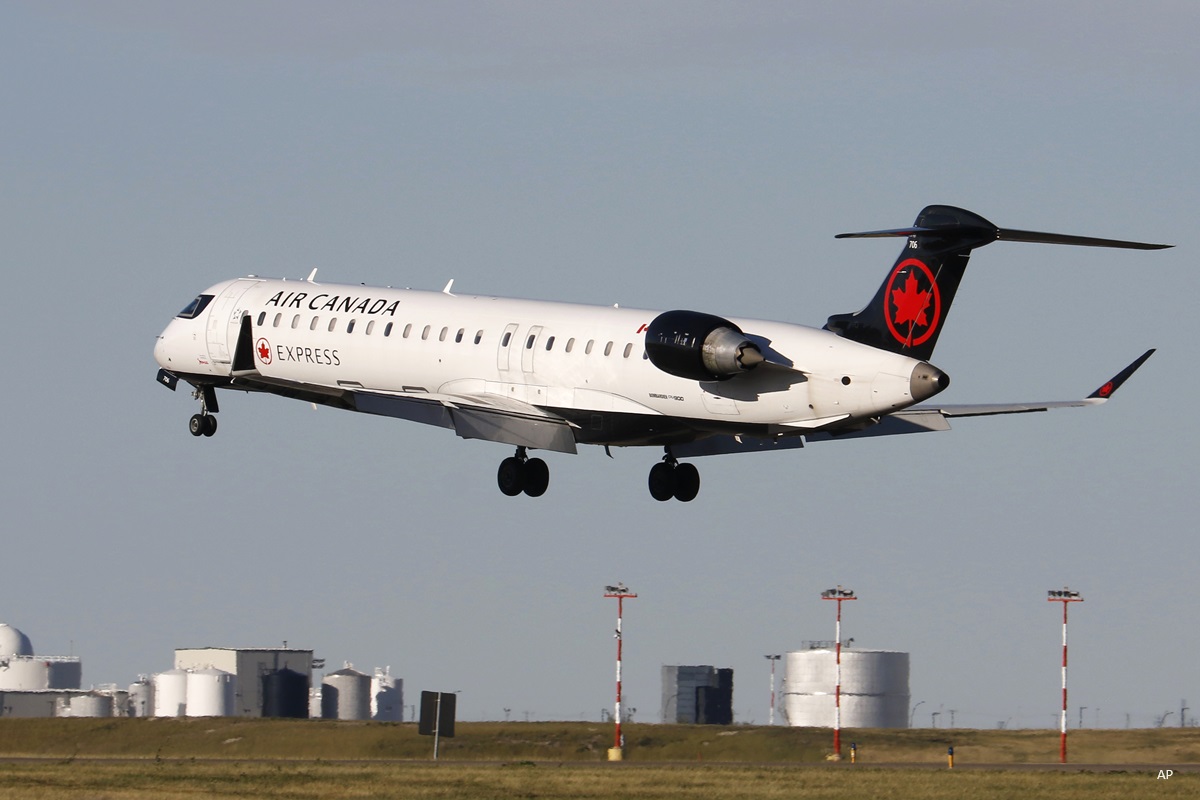
Amidst a flurry of negative global headlines, the airline industry is experiencing a quiet resurgence. Despite grappling with geopolitical tensions, labour disputes, flight delays, supply chain issues, constrained capacity and broader economic concerns, the airline industry has started to show signs of resurgence.
The International Air Transport Association recently raised its profit forecast for the global airline industry in 2024, projecting a record-high revenue of US$996 billion, a 9.7% increase from the previous year. Additionally, the number of total travellers is expected to reach an unprecedented 4.96 billion in 2024.
Those looking to capitalize on the air travel rebound might consider the following stocks that are set to benefit from rising demand and the global economic recovery. Given their current valuations, though, investors may want to wait for a meaningful pullback to create an attractive entry point.
Delta Air Lines DAL
Analyst: Nicolas Owens
- Fair Value Estimate: USD 39.00
- Price/Fair Value: 1.2
- Economic Moat: None
- Capital Allocation Rating: Standard
- Morningstar Rating: 2 stars
Delta Air Lines is one of the world's largest airlines, with a network of over 300 destinations across 50 countries. The Atlanta-based carrier operates a hub-and-spoke network, flying passengers across the globe through its biggest hubs in Atlanta, New York, Salt Lake City, Detroit, Seattle, and Minneapolis-St. Paul.
The airline has historically earned the greatest portion of its international revenue and profits from flying passengers over the Atlantic Ocean. “Delta Air Lines positions itself as a premium airline, with the highest revenue and costs per seat mile in the North American market,” says a Morningstar equity report.
The airline also has the highest penetration in the premium traffic segment among the three major U.S. full-service carriers, with business travel contributing nearly 50% of its revenue.
Delta served over 190 million customers in 2023 and was recognized as North America's most on-time airline by research firm Cirium. Its robust performance in a competitive industry is bolstered by the ongoing recovery in corporate travel, increased international demand, tighter capacity, and pandemic-driven behavioral shifts.
Morningstar equity analyst, Nicolas Owens, forecasts a return to single-digit revenue growth supported by economic recovery and pent-up consumer demand. “We expect Delta to return to 2019 levels of capacity in 2024, and expect revenue passenger miles will be approximately 22% higher in 2028 than in 2019,” says Owens, who pegs the stock’s fair value at US$39.
Southwest Airlines LUV
Analyst: Nicolas Owens
- Fair Value Estimate: USD 19.00
- Price/Fair Value: 1.48
- Economic Moat: None
- Capital Allocation Rating: Standard
- Morningstar Rating: 2 stars
The largest U.S. domestic air carrier by volume, Southwest Airlines operates over 800 aircraft in an all-Boeing 737 fleet. While the carrier offers some longer routes and perks for business travellers, it predominantly specializes in short-haul, leisure flights operated in a point-to-point network.
“Southwest has stuck to its strategy of streamlining airline operations to maintain lower unit costs than its full-service rivals, which it passes on to customers in the form of cheaper tickets and a low-frills experience,” says a Morningstar equity report.
The main risks for airline investors are increased leverage and equity dilution as airlines seek to maintain solvency during periods of weaker demand. “Southwest has the best balance sheet of all the U.S.-based carriers,” Owens assures.
The pandemic underscored the need for greater liquidity, as it severely disrupted air travel demand and challenged airlines’ business models. “The best-positioned airlines are firms like Southwest, which came into this crisis with relatively little debt and an efficient cost base,” notes Owens, who puts the stock’s fair value at US$19.
Airlines faced the worst operating environment in history during the COVID-19 pandemic. Since then, domestic leisure travel demand has recovered considerably as the U.S. economy reopened.
“We forecast continued growth with a bustling economy and pent-up demand among consumers for travel,” says Owens, but cautions that business and international travel haven’t fully recovered yet.
Air Canada AC
Analyst: Nicolas Owens
- Fair Value Estimate: C$14.30
- Price/Fair Value: 1.25
- Economic Moat: None
- Capital Allocation Rating: Standard
- Morningstar Rating: 2 stars
Canadian flag bearer, Air Canada is the country’s largest airline, serving nearly 50 million passengers annually. It also operates a low-cost sub-brand called Rouge. Air Canada is a sixth freedom airline, which flies many U.S. nationals on long-haul trips with a layover in Canada.
About three quarters of Air Canada's passenger revenue is derived from trips that begin or end beyond Canadian borders. Just over 21% comes from flights to or from the U.S.
Air Canada came into the covid crisis in better financial shape than many of its American rivals. However, its international exposure and extensive travel restrictions in the Canadian market placed it under comparably more financial stress.
The pandemic highlighted the need for liquidity by wreaking havoc on air travel demand and airlines’ business model. However, Air Canada made substantial improvements to its financial strength, “which greatly reduced the firm's financial risk during the pandemic,” says a Morningstar equity report.
Like its peers, Air Canada faced the worst operating environment in its history in 2020 due to the covid pandemic which forced it to drastically cut back capacity to respond to a steep demand drop. That said, “the worst is over for Air Canada, as border restrictions have been lifted, and we see a domestic leisure-led recovery for airlines and anticipate Air Canada can return to 2019 levels of capacity in 2024,” says Owens, who appraises the stock’s fair value to be $14.30.





:quality(80)/cloudfront-us-east-1.images.arcpublishing.com/morningstar/UBLNP5GU6FGPFN3AAPXRHIRQ5U.jpg)














